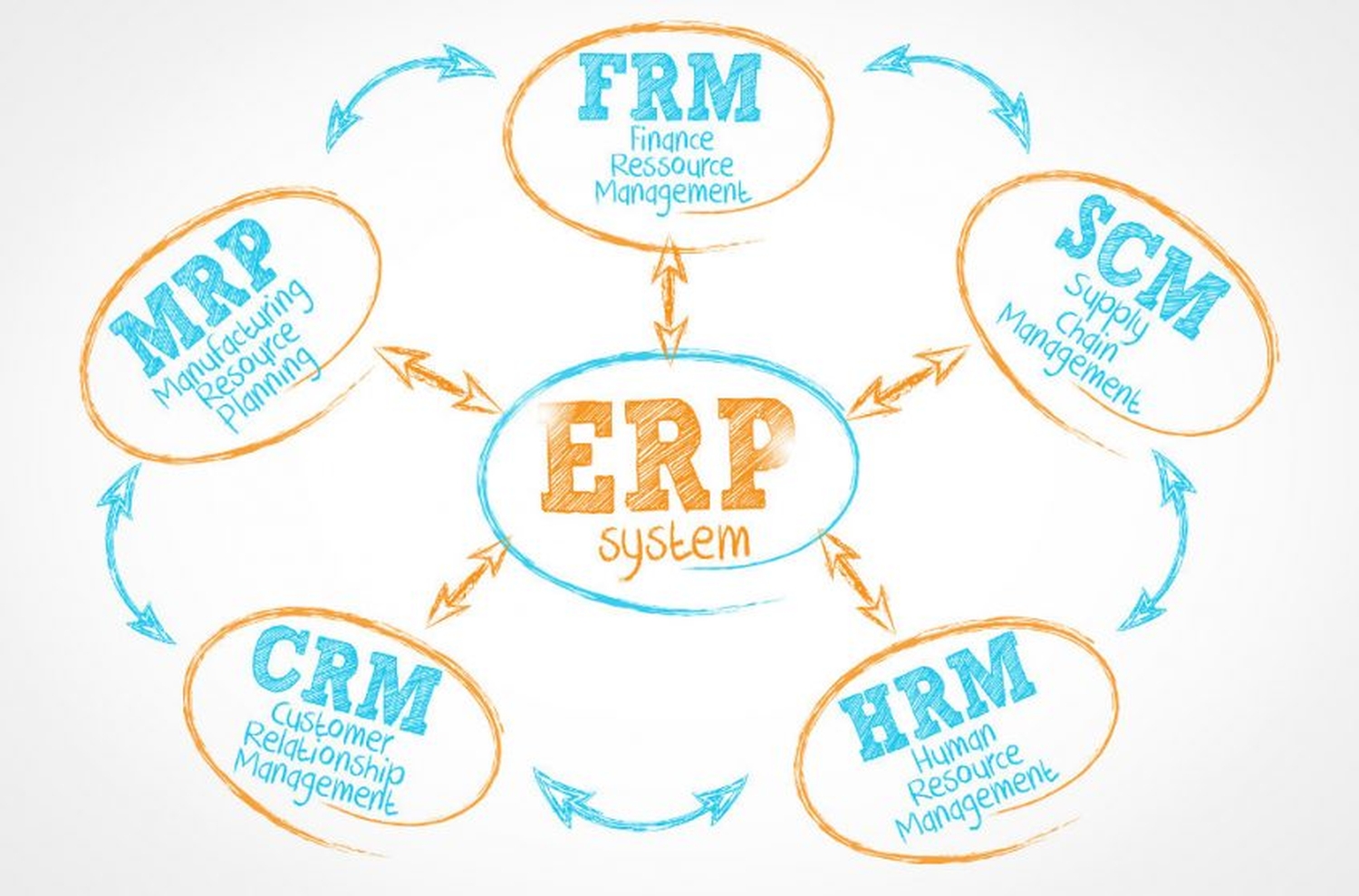
Human Resource Management (HRM) and Customer Relationship Management (CRM) are two powerful forces shaping modern business dynamics. While seemingly unrelated at first glance, they share a common thread that weaves through the fabric of successful organisations: people. However, the difference lies in the direction of their focus – HRM centres around managing internal resources, namely employees, while CRM revolves around nurturing and enhancing relationships with external resources, namely customers. These two disciplines are like parallel universes, each with unique principles, strategies, and goals.
This article will compare both software solutions and explain the key differences between each software.
Let’s get started!
Outline
- What is HRM?
- What does HRM Software do?
- Benefits of HRM
- What is CRM?
- What does CRM Software do?
- Benefits of CRM
- HRM vs CRM. What is the difference?
What is HRM?

Human resource management software, or HRM software, is a technological tool used to automate and streamline numerous HR operations and tasks in a business. It acts as a central platform that aids HR workers in managing employee data, hiring, onboarding, performance reviews, time and attendance tracking, payroll, benefits administration, and other tasks.
For instance, HR managers and staff may more effectively devote their time and resources to more productive, profitable tasks with the help of HR software.
Simply put, think of HRM software as a powerful tool that substitutes manual paperwork and monotonous administrative activities for effective, technology-driven procedures. It enables HR departments to streamline their processes, save time and money, increase accuracy, and increase productivity in its entirety. Employers tend to focus more on strategic HR efforts like talent development, employee engagement, and workforce planning by utilising HRM software, which will result in a staff that is more productive and engaged.
HRM Software can also be called HR Software for short.
Learn more about: What is HRM Software? With Examples and Types
What does HRM Software do?

Here are some of the essential functions every HRM Software must perform:
- Time tracking via self-service
- Automated pre-boarding, on-boarding, and off-boarding
- Creating specialised reports to offer strategic information
- Integrations with external applications
- Maintaining an audit trail to track all data changes
- Organising and securing employee data
- Establishing workflows and keeping track of approvals
- Tracking of performance and goals
- Tracking employee training for development and compliance
Benefits of HRM
1. Simplified and Efficient Processes: HRM software streamlines and automates various HR operations by reducing tedious manual work. This improvement in productivity enables HR teams to concentrate on more strategic projects like talent development and employee engagement, which ultimately stimulates productivity and growth.
2. Employee Empowerment: HRM software frequently includes self-service portals, giving employees greater control over their private data, time off requests, and access to HR resources.
3. Data-Driven Decision-Making: HRM software provides you with access to a range of precise and current personnel data. As a result, you can better see patterns, handle problems, and improve HR strategies to achieve business objectives. It also allows you to make wise decisions based on real-time data.
4. Scalability and Adaptability: HRM software scales to meet your needs as your firm expands, allowing you to accommodate a larger workforce and changing HR requirements. It provides adaptability to meet shifting industry standards and new HR trends, ensuring your HR procedures are flexible and efficient.
5. Compliance Made Simple: Maintaining compliance with constantly changing labour rules and regulations can be difficult. By automating procedures, monitoring training needs, and producing precise reports, HRM software helps to ensure legal compliance. This minimises the possibility of costly legal issues, thus giving peace of mind.
What is CRM?

Customer relationship management (CRM) is a software program that organises all of your business's interactions and relationships with current and potential clients. The objective is straightforward: To expand your business and improve customer relationships. Using a CRM system, companies can also boost profitability, process efficiency, and client retention.
You can get a good picture of your customers with a CRM system. Everything is available on a single dashboard which is straightforward and configurable and can provide information about a client's past interactions with you, the progress of their orders, any unresolved customer support issues, and more. You can even decide to incorporate details from their genuine social media interactions, such as their preferences and remarks and what they are saying and posting about you or your rivals.
Additionally, a CRM solution helps marketers manage and optimise campaigns and lead journeys using a data-driven approach. They can also gain a better understanding of the sales or prospect pipeline, which will make forecasting easier and more accurate.
Benefits of CRM

1. Stronger Customer Relationships: CRM helps companies build better customer connections. This is because keeping all customer information in one place allows for personalised interactions, targeted marketing campaigns, and improved customer service. This leads to happier customers who are likelier to remain loyal to the business.
2. Boosted Sales and Marketing Efforts: With CRM, sales and marketing teams can work more efficiently. They can track customer interactions, analyse buying patterns, and identify sales opportunities. This helps them prioritise leads, optimise sales pipelines, and focus marketing efforts on the most promising segments. Ultimately, it leads to increased sales revenue and better returns on marketing investments.
3. Effortless Customer Data Management: CRM is a central hub for all customer data, ensuring its accuracy and accessibility. This means employees across different departments can access the same information, collaborate more effectively, and make informed decisions. The result is improved customer service and better decision-making within the organisation.
4. Personalized Customer Experiences: CRM enables businesses to provide tailored customer experiences. For example, companies can customise their offerings, marketing messages, and interactions by understanding individual preferences, purchase histories, and behaviours. This level of personalisation boosts customer satisfaction, engagement, and repeat purchases.
5. Streamlined Sales Processes: CRM simplifies and automates various sales tasks, such as lead management, opportunity tracking, and sales forecasting. This saves time and reduces manual work, allowing sales representatives to focus on building relationships and closing deals. They can easily track their activities, monitor their performance, and receive timely reminders, increasing productivity.
6. Improved Customer Service and Support: CRM facilitates efficient management of customer inquiries, issues, and requests. Support agents can log and track customer interactions, ensuring nothing falls through the cracks. Having access to customer history and preferences helps them provide personalised and informed assistance, leading to faster resolutions and happier customers.
What does CRM Software do?
1. Centralised Customer Data: Imagine having all your customer information neatly organised in one place. CRM software is a virtual filing cabinet holding details such as contact information, purchase history, and preferences. Just like a seasoned salesperson who knows their customers inside out, CRM software provides a complete view of each customer, helping you tailor your interactions accordingly. It's like having a super-powered memory that never forgets a detail.
2. Record of Customer Interactions: Do you sometimes wish to recall every conversation you have had with a customer? With CRM software, you can! It acts as a handy logbook, capturing every touchpoint - from emails and phone calls to in-person meetings. This way, you can revisit previous discussions, follow up on important points, and provide personalised recommendations. It is like having a reliable note-taker by your side, ensuring you never miss a beat.
3. Streamlined Sales Processes: Picture a well-oiled sales machine where leads flow smoothly and deals close effortlessly. CRM software brings this vision to life by simplifying your sales processes. It helps you manage your leads, track opportunities, and monitor the progress of each deal. Think of it as a virtual sales assistant, reminding you of important follow-ups and ensuring no opportunity slips through the cracks. It's like having a personal sales coach cheering you on to victory.
4. Effective Marketing Campaigns: Have you ever received a marketing email that felt tailor-made just for you? That's the power of CRM software at work. By leveraging customer data, CRM software enables you to segment your audience and create targeted marketing campaigns. For instance, if you are a pet supply store, you can send personalised offers to customers who have previously purchased pet food. It is like having a marketing strategist on your team, helping you craft the right message for the right audience.
5. Enhanced Customer Service: You have most likely experienced the frustration of contacting customer support and repeating our issue multiple times. With CRM software, that annoyance becomes a thing of the past. It empowers customer support teams with a complete view of each customer's history and interactions. So, when you call for assistance, they can quickly access your information and provide a seamless experience. It's like having a helpful customer support agent who knows you by name and understands your unique needs.
6. Analytics and Reporting: Making informed decisions is crucial for business success. CRM software has analytics and reporting features that help you gain insights into customer relationships and track performance. For example, you can generate reports on sales revenue, customer retention rates, and campaign effectiveness.
HRM vs CRM. What is the difference?
Here are the major ways to differentiate between HRM and CRM.
1. Focus
HRM: HRM primarily concentrates on managing the organisation's workforce. It deals with various employee aspects, such as recruitment, training and development, performance management, employee relations, and compensation and benefits.
CRM: CRM revolves around managing customer relationships and interactions. It focuses on acquiring new customers, retaining existing ones, and maximising customer satisfaction. CRM involves strategies and technologies to understand customer needs, provide personalised experiences, and optimise marketing and sales efforts.
2. Purpose
HRM: HRM aims to maximise employee performance, productivity, and satisfaction. It aims to create a positive work culture, attract and retain top talent, develop employees' skills, and ensure a harmonious work environment.
CRM: The purpose of CRM is to enhance customer satisfaction, loyalty, and profitability. CRM aims to build strong customer relationships, understand customer preferences, provide personalised experiences, and optimise sales and marketing strategies to increase customer retention and drive business growth.
3. Key Activities
HRM: HRM activities include recruitment and selection, onboarding, training and development, performance management, compensation and benefits administration, employee engagement, conflict resolution, and workforce planning.
CRM: CRM activities include customer data collection and analysis, customer segmentation, lead generation, sales pipeline management, customer service and support, marketing campaign management, customer feedback analysis, and customer retention strategies.
4. Data Focus
HRM: HRM primarily deals with employee-related data, such as personal information, performance evaluations, training records, and compensation details.
CRM: CRM focuses on customer-related data, including contact information, purchase history, preferences, interactions with the company, feedback, and demographic information.
5. Impact and Stakeholders
HRM: HRM impacts employees and the internal functioning of the organisation. It involves HR professionals, managers, and all employees within the company.
CRM: CRM impacts customers and the external relationships of the organisation. It involves sales and marketing teams, customer service representatives, and customers themselves.
Conclusion
CRM focuses on creating and maintaining strong customer relationships to increase client retention and stimulate business development, while HRM primarily works on managing the organisation's personnel and guaranteeing employee satisfaction. Despite having different priorities and goals, HRM and CRM are essential to every company's success.
Related post
Recent Posts
Need help with a project?
© Wazobia Technologies 2024
Powered by:
